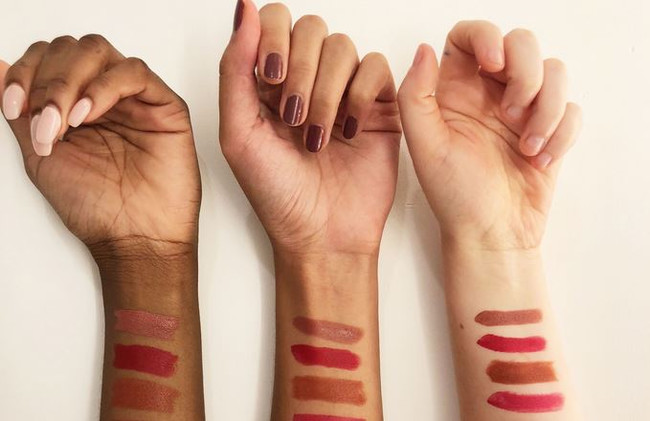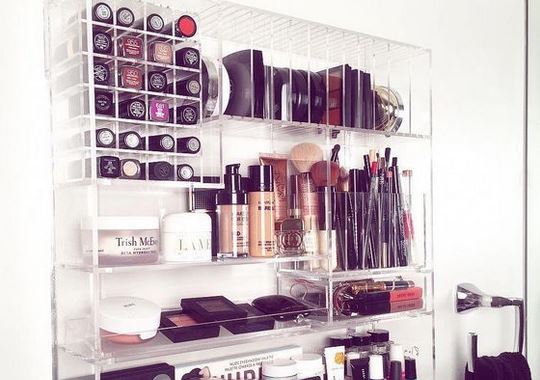How to Choose the Right Foundation for Your Skin Type | |

| |
Finding the right foundation for your skin type is essential to achieve a flawless and natural-looking makeup base. With so many options available in the market, it can be overwhelming to determine which foundation is best suited for your skin. In this article, we will guide you through the process of choosing the right foundation for your skin type, whether you have dry, oily, combination, or sensitive skin. Let's dive in and discover the perfect foundation match for you! 1. Determine Your Skin TypeThe first step in selecting the right foundation is to determine your skin type. Is your skin dry, oily, combination, or sensitive? Understanding your skin's characteristics will help you narrow down the options and find a foundation that addresses your specific needs. 2. Dry SkinIf you have dry skin, look for foundations with hydrating properties. Opt for liquid or cream formulas that provide a moisturizing effect. Foundations with ingredients like hyaluronic acid and glycerin are great choices as they help to lock in moisture and prevent your skin from looking flaky or dull. 3. Oily SkinFor oily skin, it's important to choose a foundation that controls shine and keeps excess oil at bay. Look for oil-free or matte formulas that offer a long-lasting, shine-free finish. Foundations with ingredients like salicylic acid or kaolin clay can help absorb excess oil and minimize the appearance of pores. 4. Combination SkinIf you have combination skin, where some areas of your face are oily while others are dry, it's best to opt for a foundation that strikes a balance. Consider using a lightweight, water-based foundation that provides hydration without adding excess oil. You can also use different formulas on different areas of your face to cater to specific needs. 5. Sensitive SkinIf you have sensitive skin, it's important to choose a foundation that is hypoallergenic and free from irritants. Look for foundations labeled as fragrance-free and formulated for sensitive skin. Mineral-based foundations are often a good option as they are gentle and less likely to cause irritation. 6. Determine Your UndertoneApart from considering your skin type, it's crucial to determine your undertone when selecting a foundation. Undertones can be warm, cool, or neutral. Warm undertones have a yellow or golden hue, cool undertones have a pink or blue undertone, and neutral undertones have a balance of both. Knowing your undertone will help you find a foundation shade that matches your natural skin tone seamlessly. 7. Test and SwatchOnce you have an idea of the type of foundation and undertone that suits you, it's time to test and swatch the shades. Visit a makeup counter or store that offers testers and swatch different shades on your jawline or inner wrist. Choose a few shades that closely match your skin tone and try them in natural lighting to ensure a perfect match. 8. Consider the CoverageFoundations come in different levels of coverage, ranging from sheer to full coverage. Consider the level of coverage you prefer. If you have relatively clear skin and want a more natural look, a sheer or light coverage foundation might be suitable. If you have blemishes or discoloration that you want to conceal, a medium to full coverage foundation will provide better coverage. 9. Seek Professional AssistanceIf you're still unsure about which foundation to choose, don't hesitate to seek assistance from a professional makeup artist or beauty consultant. They can analyze your skin, recommend suitable options, and even provide samples for you to try at home. Their expertise will help you find the perfect foundation match. FAQs1. How do I know if I have sensitive skin?Sensitive skin is often characterized by redness, irritation, and a tendency to react to certain skincare or makeup products. If you frequently experience these symptoms, you may have sensitive skin. 2. Can I use a different foundation shade in winter and summer?Yes, it's common for people to have slightly different skin tones in different seasons. You can adjust your foundation shade accordingly to match your current skin tone. 3. How do I determine my undertone?One way to determine your undertone is to look at the veins on the inside of your wrist. If they appear more greenish, you likely have warm undertones. If they appear bluish, you likely have cool undertones. If you can't distinctly determine the color, you may have a neutral undertone. 4. Can I mix foundations to create a custom shade?Yes, you can mix foundations to create a custom shade that matches your skin tone perfectly. This is especially useful if you have difficulty finding a shade that matches you exactly. 5. Should I set my foundation with powder?Setting your foundation with powder can help prolong its longevity and reduce shine. However, it's not necessary for everyone. If you have dry skin, you may prefer to skip powder or use a minimal amount. 6. Can I wear foundation every day?Yes, you can wear foundation every day if you choose a lightweight formula and ensure proper cleansing and skincare routine to keep your skin healthy. ConclusionChoosing the right foundation for your skin type is crucial for achieving a flawless and natural-looking makeup base. By considering your skin type, undertone, coverage preferences, and seeking professional assistance if needed, you can find a foundation that enhances your natural beauty. Remember to test and swatch different shades to ensure a perfect match. With the right foundation, you'll be ready to rock any makeup look with confidence! | |
| Category: Makeup | |
| Total comments: 0 | |









